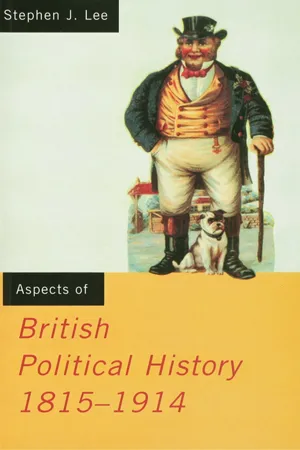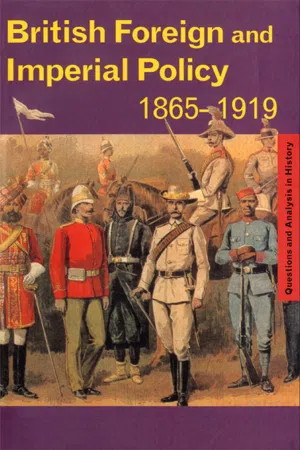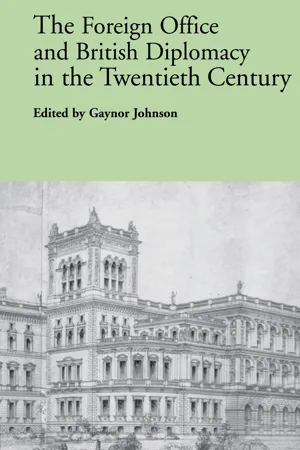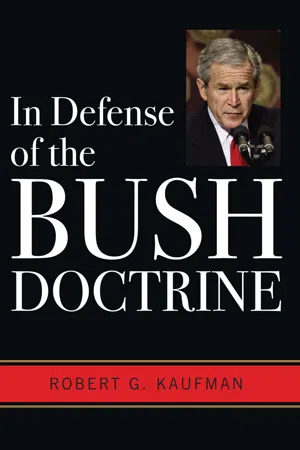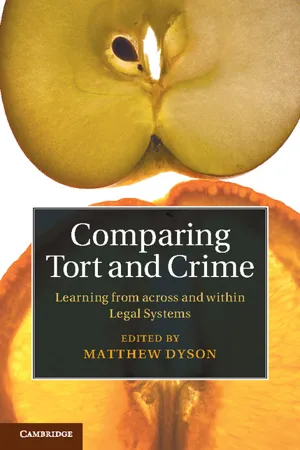History
Splendid Isolation
"Splendid Isolation" refers to the foreign policy of the United Kingdom during the 19th century, characterized by a reluctance to form alliances and a focus on maintaining its own interests. This approach was particularly associated with British Prime Minister Lord Salisbury and aimed to preserve British independence and avoid being drawn into continental conflicts.
Written by Perlego with AI-assistance
Related key terms
1 of 5
6 Key excerpts on "Splendid Isolation"
- eBook - ePub
- Stephen J. Lee(Author)
- 2013(Publication Date)
- Routledge(Publisher)
19 FROM Splendid Isolation TO WAR British foreign policy 1895–1914The term ‘Splendid Isolation’ refers to a period in British diplomacy when the British government preferred a policy of isolation to an alliance or close diplomatic ties with other powers. This is usually considered to have lasted from 1895 until 1902. Contemporary politicians certainly used the term; it appeared in the speeches of Salisbury, Rosebery, Harcourt, Goschen and Joseph Chamberlain, to name only a few. Historians, however, have been more wary. The first to use the description consistently was W.H. Dawson, who argued that Lord Salisbury deliberately opted for a policy of ‘Splendid Isolation’.1 This has been questioned by others, who maintain that if indeed Britain was in isolation, it was involuntary and far from ‘splendid’. L. Penson, for example, considered that ‘her isolation was a fact rather than a policy’,2 while Z. Steiner considers that ‘Splendid Isolation’ is ‘a cliché which must be abandoned’.3‘Splendid’ or not, there were good reasons at the end of the century for emerging from it. This was a gradual process involving the Anglo-Japanese Alliance of 1902, the Anglo-French Entente (1904) and the Anglo-Russian Convention (1907). The intention of these was not to increase Britain’s involvement in Europe, or to seek a European-based security. They were primarily concerned with settling imperial and maritime problems.But one thing led to another and Britain found herself increasingly involved by these new connections in European affairs. There were several issues which ensured that this occurred. One was the growing rivalry with Germany. Another was the delayed effect of the Treaty of Berlin which now threw up crises to threaten the equilibrium of the powers, which included Britain within its scope.This ensured that the last vestiges of isolation disappeared and Britain even began to develop military co-operation with France and Russia. But even in 1914 Britain was not committed by the Ententes to going to war with Germany and her reason for so doing needs separate analysis. - eBook - ePub
The Shadow of the Past
Reputation and Military Alliances before the First World War
- Gregory D. Miller(Author)
- 2011(Publication Date)
- Cornell University Press(Publisher)
3
The End of Splendid Isolation
British Pursuit of an Ally, 1901–1905
Associate yourself with men of good quality if you esteem your own reputation; for ‘tis better to be alone than in bad company.GEORGE WASHINGTONImportant Dates
Key Actors
Britain’s attitude toward the European Continent at the end of the nineteenth century is often described as one of “Splendid Isolation.” This is an unfortunate term because it mischaracterizes British foreign policy during that time. Rather than avoiding involvement in European power politics—which is how U.S. isolation is frequently described—Britain simply avoided any long-term formal defense commitments, giving it a free hand to switch allegiances and maintain the balance of power on the Continent. However, events toward the end of the nineteenth century contributed to a shift in British thinking. Growing competition for colonies among Europe’s great powers brought with it increased threat from foreign navies, particularly France and Russia after their formation of the Dual Alliance on 4 January 1894. In addition, the Boer War (1899–1902)—opposed by much of the rest of Europe—illustrated to many in the British government the limited resources they had available for maintaining their empire and for unilaterally preserving Europe’s balance of power.1As a result, for the first half-decade of the 1900s, British alliance decisions significantly diverged from previous policy. Britain initially looked to Germany for increased cooperation, as a direct balance against both France and Russia. However, within a year the British government abandoned its alliance negotiations with Germany and instead turned to Japan as a way to balance against Russia in Asia. England was then nearly dragged into a war when Japan attacked Russia, but the British felt so compelled to honor their agreement that they went beyond the required neutrality. Then, during the Russo-Japanese War, England formed the Entente Cordiale with France, which was at least partly a result of the two states’ mutual concern over being dragged into war by their allies. This agreement not only influenced the outcome of the war between Japan and Russia, as well as the First Moroccan Crisis, but it also helped lay the foundation for the division of Europe leading up to the First World War. - Graham Goodlad(Author)
- 2005(Publication Date)
- Routledge(Publisher)
Those who criticise Salisbury for his reluctance to enter into binding general alliances should reflect on the implications for continental peace of the commitments made by Britain’s rivals at the turn of the century. Questions 1. How much did the success of Salisbury’s foreign policy owe to favourable external circumstances? 2. How well were British interests served by Salisbury’s Mediterranean policies between 1885 and 1896? ANALYSIS (2): HOW ACCURATE IS THE TERM ‘Splendid Isolation’ AS A DESCRIPTION OF LORD SALISBURY’S FOREIGN POLICY? The notion of ‘isolation’ as a description of British foreign policy in the age of Salisbury is one that enjoyed wide currency at the time. To some it was a conscious choice, which reflected Britain’s ability to rely on her own resources and prestige as the head of the world’s largest empire. Others saw Britain’s lack of allies as an involuntary position, a source of weakness in the increasingly hostile world of the late nineteenth century. Thus in January 1896 the leader of the Canadian House of Commons referred to ‘the great mother Empire…splendidly isolated in Europe’, while an 60 SALISBURY AND FOREIGN POLICY opponent in the same debate alleged that ‘England stands dangerously isolated, and not splendidly isolated’. 2 It was possible to change one’s mind about the merits of Britain’s assumed detachment from continental alignments. Thus George Goschen, First Lord of the Admiralty, declared in a speech at Lewes in February 1896 that ‘our isolation is not an isolation of weakness; it is deliberately chosen, the freedom to act as we choose in any circumstances that might arise’. 3 Yet in September 1900, conscious of Russia’s penetration of China, Goschen acted as spokesman for a cabinet group who urged Salisbury to take steps ‘to detach the German Emperor from Russia and bind him more closely to our interests’.- Gaynor Johnson(Author)
- 2013(Publication Date)
- Routledge(Publisher)
Splendid Isolation to Finest Hour: Britain as a Global Power, 1900–1950 JOHN CHARMLEYThe title of this essay would match its content better were the title to be reversed and read: ‘Finest Hour to Splendid Isolation’. The need to understand the origins of the two world wars dominated the study of British foreign policy in the first half of the twentieth century, shaping a narrative in which the themes of triumph and decline coexist without any sense of unease. Simultaneously the story is one of two great victories, followed by a period of precipitous decline. Paul Kennedy, writing in the early 1980s, thought that ‘since Britain did occupy for so long a period such a pre-eminent role in world affairs, it is important to emphasise how swiftly and how completely that position has vanished’.1 Twenty years on, no one would write quite in this vein, but historians have not yet adjusted themselves away from the obsession with what has been called (in an ugly neologism) ‘declinology’. If the grand narrative no longer ends where it did, there may also be a case for arguing that it may not begin there either. In four books dealing with aspects of British diplomacy after 1874, the author of this essay has endeavoured to argue the need for a different perspective on the subject;2 clamant arguments over the virtues, or otherwise, of Winston Churchill have sometimes obscured the deeper argument pursued. This essay takes the opportunity to suggest how British foreign policy in the first half of the twentieth century might look if the triumphal lenses are laid aside.European diplomacy from the creation of the Kaiserreich to the outbreak of the Great War was first studied in order to understand how the first event led to the second. Works by the giants of diplomatic history, W.L. Langer, Luigi Albertini, Bernadotte Schmitt and A.J.P. Taylor, pioneered the way, followed in a later generation by magisterial studies by James Joll, Paul Kennedy, Zara Steiner, Samuel Williamson, Dominic Lieven, Richard Bosworth, John Keiger and Volker Berghahn.3 Unconsciously a teleology emerged and all roads led to 1914. The fact that understanding the outbreak of the Great War failed to prevent a Second World War confirmed the centrality of the Anglo-German antagonism as an organising theme of the meta-narrative of twentieth century British foreign policy. A.J.P. Taylor (again), Donald Watt, Sidney Aster, Martin Gilbert and others all tried to explain how the second cataclysm had occurred.4 All of this scholarly activity created the framework within which we came to understand the history of British foreign policy in the last century. The picture itself was painted in its boldest colours by one of the most influential historians of the twentieth century — Winston Churchill. His clear, broad brush strokes revealed a Britain passing from the isolationism of Salisbury through a continental commitment by Grey to the triumph of the First World War; but this was followed by a retreat from commitment, the disaster of appeasement and a new German attempt at world domination. This story was already familiar from the documentary record, most notably Eyre Crowe's famous memorandum of 1 January 1907, reproduced in Gooch and Temperley's third volume of British Documents on the Origins of the War .5 This placed recent British policy into a longer tradition, arguing that since the days of the Elizabeth I, Britain had tried to maintain the balance of power in Europe by opposing the attempts of any single power to dominate the continent. Churchill's narrative fitted easily within this wider picture, the effect of which was to enable him to argue that the appeasers of the 1930s had (in a favourite phrase) fallen below the level of events; they were outside the grand tradition of British foreign policy. Thanks to Churchill, what Lord Robert Cecil, third Marquess of Salisbury, had written in 1864 was as true a century later: ‘We have been brought up to believe that England's voice is of weight in the councils of the world. Our national pride has been fed by histories of the glorious deeds of our fathers, when single-handed they defied the conqueror to whom every other European nation had been compelled to humble itself.6- eBook - PDF
- Robert G. Kaufman(Author)
- 2007(Publication Date)
- The University Press of Kentucky(Publisher)
Nor does Buchanan grasp how much the efficacy of isolationism pre- supposed another contingent rather than permanent condition: a self- regulating European balance of power, in which Great Britain operates reliably as the ultimate balancer. 10 Long before Sir Halford Mackinder developed his conception of geopolitics at the beginning of the twentieth century, genera- tions of British statesmen instinctively practiced fundamentals of his geopoliti- cal maxims: if a single hostile power or combination of such powers came to dominate Europe, it would possess the abundance of resources necessary to overcome Great Britain on sea as well as on land. Great Britain therefore had a vital interest in preventing any such powers from achieving this dominance. Winston Churchill wrote: For four hundred years the foreign policy of England has been to oppose the strongest, most aggressive, most dominating power on the Continent. . . . Faced by Philip II of Spain, against Louis XIV, . . . against Napoleon, against William II of Germany, it would have been easy and must have been very tempting to join with the stronger and share the fruits of his conquest. However, we always took the harder course, joined with the less strong Powers, and made a combination among them, and thus defeated and frus- trated the Continental military tyrant wherever he was, whatever nation he led. Thus we preserve the liberty of Europe. . . . Here is that wonderful unconscious tradition of British foreign policy. . . . I know of nothing which has occurred to alter or weaken the justice, wisdom, valour and prudence upon which our ancestors acted. I know of nothing in military, political, economic, or scien- tific fact which makes me feel that we are less capable. I know of nothing which makes me feel that we might not, or cannot, march along the same road. . . . Observe that the policy of England takes no account of which nation it is that seeks overlordship of Europe. - eBook - PDF
Comparing Tort and Crime
Learning from across and within Legal Systems
- Matthew Dyson(Author)
- 2015(Publication Date)
- Cambridge University Press(Publisher)
2 England’s Splendid Isolation matthew dyson and john randall ∗ We have stood here alone in what is called isolation – our Splendid Isolation 1 1. Introduction So spoke an English politician at the end of the nineteenth century describ- ing a Splendid Isolation from the rest of Europe, but the same might be said of much in its legal, rather than foreign, affairs. On one level, England has long been proud of the isolation it thinks it has had from civil law influence. 2 That England’s common law applied so widely around the world was a reason to think itself splendid, and other legal systems of less importance. This was true in both tort and crime: in general English lawyers disparaged the techniques of the continent, such as the partie civile. 3 Most importantly, there have been just as Splendid Isolations within English law. First, the distinction between procedure and substance has been particularly important. Certainly until the nineteenth century it was procedure that drove the common law, and the procedures were largely made up of isolated systems for each court. 4 The substantive categories we know today were slower to develop than this procedural structure. ∗ The authors would like to thank Michael Stokes for comments on the text; the usual caveat applies. 1 Lord Goschen, First Lord of the Admiralty, 26 February 1896. See generally J. Charmley, Splendid Isolation?: Britain, the Balance of Power and the Origins of the First World War (London: Hodder & Stoughton, 1999). 2 Perhaps most famously, O. W. Holmes, Collected Legal Papers (New York: Peter Smith, 1952), 155–7. 3 See, e.g., Winn Committee on Personal Injuries Litigation, Cmnd 3691 (1968), which described the partie civile as [393]: ‘no faster despatch’, [396] ‘unworkable’ and ‘unnecessary’. 4 See, e.g., J. H. Baker, An Introduction to English Legal History, 4th edn (London: Butter- worths 2002), Ch. 4; Frederick Pollock and F. W. Maitland, History of English Law, vol.
Index pages curate the most relevant extracts from our library of academic textbooks. They’ve been created using an in-house natural language model (NLM), each adding context and meaning to key research topics.
